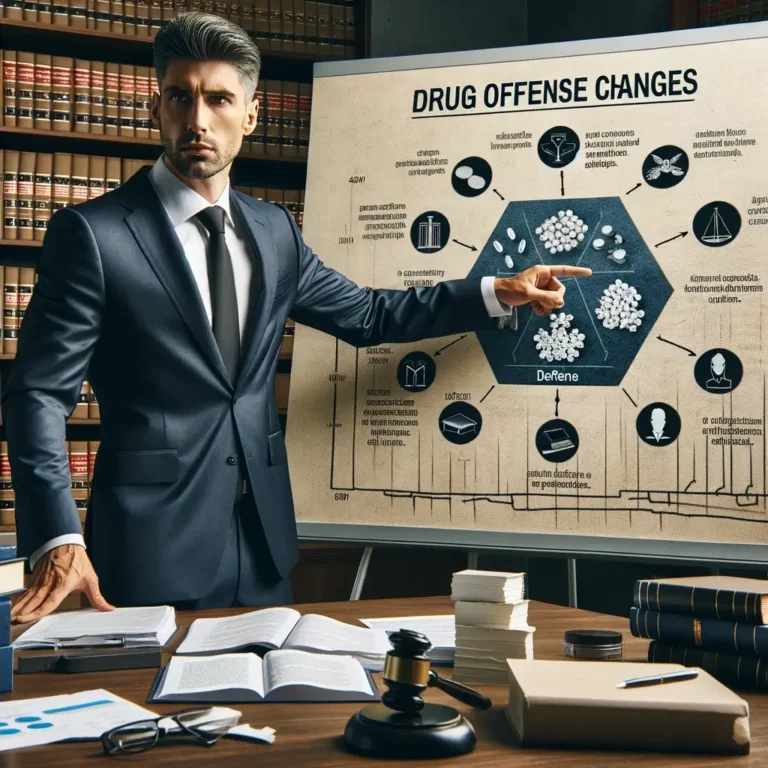In this article we have explained Role of Defense Attorney For Phishing And Online Scams.
Introduction
In today’s digital era, phishing and online scams have become rampant, posing significant challenges to individuals and businesses alike. As these cybercrimes grow in sophistication, the role of defense attorneys specialized in cyber law, particularly under Indian law, becomes increasingly crucial. This article explores how these legal professionals navigate the complex landscape of cybercrime to defend the accused effectively.
Understanding Phishing and Online Scams
What are Phishing and Online Scams?
Phishing and online scams involve deceitful practices where scammers trick individuals into divulging personal, financial, or security information online. These activities can lead to unauthorized transactions, identity theft, and significant financial losses.
The Legal Framework in India
Indian law, through the Information Technology Act, 2000 (IT Act) and the Indian Penal Code, 1860 (IPC), provides a comprehensive legal framework to tackle these cybercrimes. The IT Act, in particular, addresses various forms of cyber offenses, including identity theft, cheating by personation, and violation of privacy.
Role of Defense Attorney for Phishing and Online Scams under Indian Law
Legal Representation and Advice
Defense attorneys play a pivotal role in representing individuals accused of phishing and online scams. They provide legal advice, guide their clients through the legal process, and represent them in court proceedings.
Examining the Evidence
One of the critical functions of defense attorneys is to meticulously examine the evidence presented against their clients. This involves analyzing digital footprints, transaction records, and communication trails to build a robust defense strategy.
Protecting Client Rights
Defense attorneys ensure that their clients’ rights are protected throughout the legal process. They challenge any procedural violations and ensure that the accused receive a fair trial, in line with the principles of justice.
Negotiating Settlements
In some cases, defense attorneys may negotiate settlements with the aggrieved parties. This can involve compensating the victims while mitigating the legal consequences for the accused.
Strategies Employed by Defense Attorneys
Challenging the Authenticity of Digital Evidence
Given the digital nature of phishing and online scams, defense attorneys often challenge the authenticity and integrity of digital evidence. They may question the methods used to collect, store, and analyze digital data to ensure it has not been tampered with.
Proving Lack of Intent
A successful phishing or scam charge often requires proving the accused’s intent to defraud. Defense attorneys may argue that their client lacked fraudulent intent, which is a crucial element in many cybercrime offenses.
Highlighting Procedural Flaws
Defense attorneys vigilantly identify any procedural flaws in the investigation or prosecution process. This can include violations of privacy rights, improper evidence handling, or breaches of the accused’s constitutional rights.
Conclusion
The role of defense attorneys in cases of phishing and online scams under Indian law is multifaceted and critical. They not only provide legal representation but also safeguard the rights of the accused, ensuring justice is served. By challenging the evidence, negotiating settlements, and highlighting procedural flaws, defense attorneys play a vital role in the legal landscape of cybercrime defense. Their expertise and actions are pivotal in navigating the complexities of cyber law, offering a beacon of hope and fairness in the digital age.
FAQs on the Role of Defense Attorney for Phishing and Online Scams under Indian Law
1. What is phishing?
Phishing is a cybercrime where individuals are tricked into sharing personal information, like passwords or credit card numbers, through deceptive emails or websites.
2. What law covers phishing in India?
The Information Technology Act, 2000 (IT Act) primarily covers phishing and online scams in India, along with relevant sections of the Indian Penal Code, 1860 (IPC).
3. Can a defense attorney help if I’m accused of online scams?
Yes, a defense attorney specialized in cyber law can provide legal assistance, represent you in court, and help build a defense strategy if you’re accused of online scams.
4. What does a defense attorney do in cybercrime cases?
A defense attorney examines evidence, advises clients, protects their rights, and represents them in legal proceedings related to cybercrime accusations.
5. How do defense attorneys challenge digital evidence?
They may question the methods used in collecting, storing, and analyzing digital data to ensure it hasn’t been tampered with or mishandled.
6. Is intent important in phishing cases?
Yes, proving the accused’s intent to defraud is often a critical element in phishing and online scam cases.
7. Can procedural flaws affect a cybercrime case?
Yes, defense attorneys look for procedural flaws, such as violations of privacy rights or improper evidence handling, which can impact the case’s outcome.
8. What is the role of negotiation in cybercrime defense?
Defense attorneys may negotiate settlements to compensate victims while mitigating legal consequences for the accused.
9. Are phishing victims entitled to compensation?
Yes, victims of phishing can seek compensation through legal channels, and settlements can sometimes be negotiated.
10. How can a defense attorney prove lack of fraudulent intent?
By presenting evidence or arguments that show the accused did not intend to commit fraud or deceive anyone.
11. What is identity theft under Indian law?
Identity theft involves unlawfully obtaining, using, or possessing someone else’s personal information without their consent, covered under the IT Act.
12. Can companies be held liable for phishing scams?
Yes, if a company’s negligence led to the scam or if they were directly involved, they could be held liable.
13. What defenses are available for phishing accusations?
Defenses may include lack of intent, authorization to use the information, or challenging the evidence’s reliability.
14. How long do cybercrime trials last in India?
The duration varies depending on the case’s complexity, court backlog, and specific details of the offense.
15. Can a minor be charged with phishing in India?
Yes, minors can be charged under the IT Act and the Juvenile Justice Act, with proceedings adjusted for their age.
16. Are emails the only way phishing scams are conducted?
No, phishing can also occur via text messages, social media, and fake websites.
17. What is spoofing, and is it illegal?
Spoofing, creating a fake version of a reputable site or sending communications from a forged source, is illegal under the IT Act.
18. How can one report phishing in India?
You can report phishing to the nearest cybercrime police station or through the National Cyber Crime Reporting Portal.
19. Can ignorance be a defense in phishing cases?
Ignorance of the law is generally not a valid defense, but unawareness of committing a crime might be considered in the defense strategy.
20. What is the punishment for phishing in India?
Punishments vary, including imprisonment, fines, or both, depending on the offense’s severity and the specific laws applied.
21. Can international laws apply to phishing cases in India?
Yes, if the crime involves international elements, international laws and treaties may come into play alongside Indian laws.
22. How does encryption affect a phishing defense case?
Encryption can make it harder to trace phishing activities, affecting both prosecution and defense strategies in a case.
23. Are there preventive legal measures against phishing?
While laws primarily address consequences, businesses can take legal steps like implementing privacy policies and security measures to prevent phishing.
24. Can a defense attorney get a phishing case dismissed?
Yes, if they successfully challenge the evidence or prove procedural flaws, a case can be dismissed.
25. What is the difference between phishing and hacking?
Phishing involves deception to obtain sensitive information, while hacking refers to unauthorized access to systems or networks.
26. Can phishing be accidental?
Phishing requires intent to deceive, so accidental actions typically do not qualify as phishing under the law.
27. How does the IT Act protect personal information?
The IT Act includes provisions to protect personal information and penalize unauthorized access or theft of such information.
28. Can one sue for damages after a phishing scam?
Yes, victims can sue for damages, and courts can award compensation based on the case’s specifics.
29. What are the challenges in prosecuting phishing cases?
Challenges include tracing the perpetrators, proving intent, and dealing with cross-jurisdictional issues.
30. How can one find a defense attorney for a phishing case?
You can search for attorneys specializing in cyber law or consult legal firms that handle cybercrime cases to find suitable representation.
Sources :-















